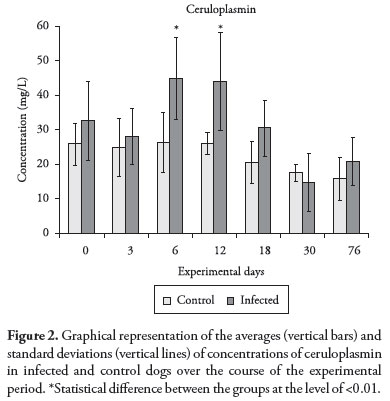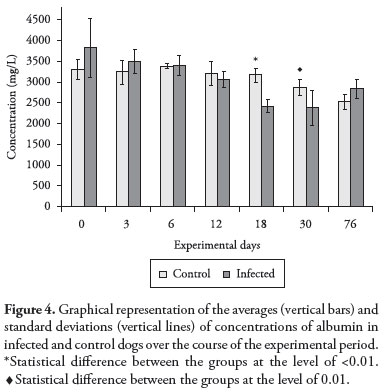Early diagnosis of canine ehrlichiosis favors prompt institution of treatment and improves the prognosis for the animal, since this disease causes mortality among dogs. Studies have shown that determining the concentration of acute-phase proteins (APPs) may contribute towards early detection of disease and aid in predicting the prognosis. This study aimed to evaluate the APP profile in dogs experimentally infected with Ehrlichia canis, at the start of the infection and after treatment. It also investigated whether any correlation between APP levels and the clinical and laboratory alterations over the course of the disease would be possible. The results obtained showed abnormal levels of all the APPs on the third day after infection (D3), with the highest levels being reached on D18, with the exception of ceruloplasmin and acid glycoprotein, which presented their peaks on D6 and D12 respectively. We concluded that assessment of APP levels could contribute towards establishing an early diagnosis of canine ehrlichiosis, particularly regarding acid glycoprotein and ceruloplasmin, since these proteins were detected at increased levels even before the onset of clinical and laboratory findings of the disease.
Ehrlichia canis; experimental infection; acute-phase proteins; dogs







